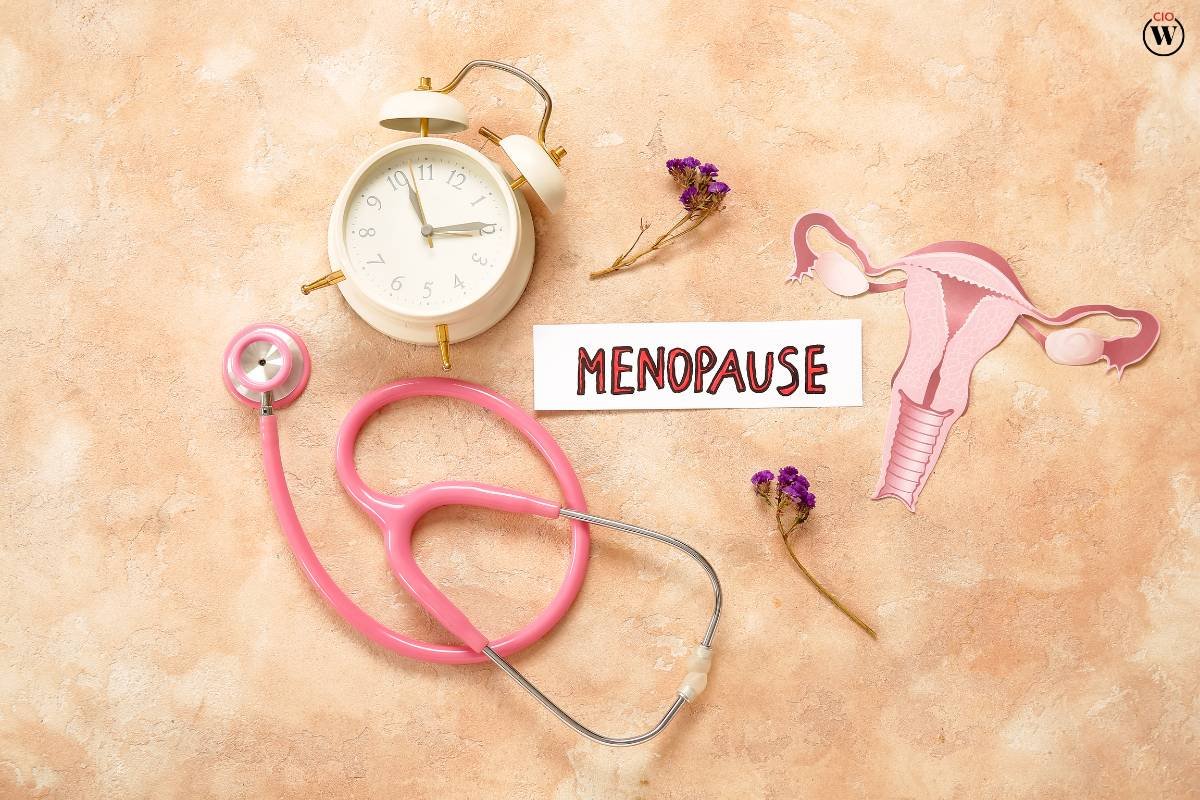Menopause, a natural phase in every woman’s life, marks the end of reproductive years. This transformative journey is characterized by various stages, each presenting unique challenges and experiences. Understanding these stages empowers women to navigate through this transition with grace and knowledge. In this comprehensive guide, we delve into the stages of menopause, shedding light on the physical, emotional, and hormonal changes that accompany each phase.
Here are three stages of menopause:
Stage 1: Perimenopause – The Prelude to Menopause
Perimenopause, often referred to as the “prelude to menopause,” is one of the initial stages of menopause that typically begins in a woman’s late 40s or early 50s. This stage marks the gradual decline in ovarian function and the onset of hormonal fluctuations, setting the stage for the cessation of menstruation. While perimenopause can span several years, its symptoms may vary widely among women, ranging from mild to severe.
In addition to irregular menstrual cycles, women may experience a myriad of symptoms during perimenopause, including hot flashes, night sweats, mood swings, fatigue, and sleep disturbances. These symptoms can disrupt daily life and impact emotional well-being, prompting many women to seek support and guidance.
Managing perimenopausal symptoms involves adopting lifestyle modifications that promote hormonal balance and overall health. A balanced diet rich in fruits, vegetables, whole grains, and lean proteins can provide essential nutrients and support hormone regulation. Regular exercise, such as aerobic activities, strength training, and yoga, can alleviate stress, improve mood, and enhance overall well-being.
Stage 2: Menopause – Embracing Change
Menopause, often heralded as a symbol of change and transformation, marks the cessation of menstruation and the end of reproductive years. This pivotal stage typically occurs around the age of 51, although the timing may vary among women. As the ovaries cease to produce eggs and hormonal levels fluctuate, women experience a myriad of physical and emotional changes that characterize the menopausal transition.

The hallmark symptom of different stages of menopause is the absence of menstrual periods for 12 consecutive months. However, many women continue to grapple with a range of symptoms, including hot flashes, night sweats, vaginal dryness, sleep disturbances, mood swings, and cognitive changes. These symptoms can vary in intensity and duration, impacting women’s quality of life and emotional well-being.
Managing menopausal symptoms involves a multifaceted approach that addresses both physical and emotional aspects of health. Hormone replacement therapy (HRT), comprising estrogen and progesterone, can alleviate symptoms such as hot flashes, vaginal dryness, and mood swings. However, HRT is not suitable for all women and may pose risks for certain individuals, necessitating careful consideration and consultation with healthcare providers.
Stage 3: Postmenopause – Embracing New Beginnings
Postmenopause, the final stage of the menopausal journey, represents a period of transition and renewal as women emerge from the tumultuous terrain of hormonal fluctuations. This phase begins one year after the last menstrual period and extends throughout the remainder of a woman’s life. While the cessation of menopausal symptoms brings relief to many women, postmenopause presents its own set of health considerations and challenges.
During postmenopause, hormonal levels stabilize, and many menopausal symptoms diminish or resolve. However, women may still experience long-term health concerns, including osteoporosis, cardiovascular disease, and cognitive changes. Maintaining optimal bone health through calcium and vitamin D supplementation, weight-bearing exercises, and regular bone density screenings is essential in reducing the risk of fractures and osteoporosis-related complications.
Similarly, prioritizing heart health through a heart-healthy diet, regular exercise, stress management, and smoking cessation can mitigate the risk of cardiovascular disease, which increases with age and hormonal changes during menopause.
Navigating the Emotional Terrain

Beyond the physical manifestations, menopause exerts a profound impact on women’s emotional well-being. Hormonal fluctuations, coupled with life transitions and societal expectations, can precipitate mood swings, anxiety, and feelings of loss or inadequacy. Seeking support from friends, family, or mental health professionals can foster emotional resilience and facilitate adaptation to evolving identities. Additionally, embracing self-compassion and engaging in mindfulness practices can cultivate a sense of acceptance and empowerment amidst the tumultuous terrain of menopause.
Addressing Sexual Health
Menopause often engenders changes in sexual health, including decreased libido, vaginal dryness, and discomfort during intercourse. Different stages of menopause, thus require different treatments. Open communication with partners and healthcare providers is essential in addressing these concerns and exploring strategies to enhance intimacy and pleasure. Incorporating lubricants, vaginal moisturizers, and hormone therapy can alleviate discomfort and revitalize sexual experiences, fostering intimacy and connection during this transformative phase of life.
The Role of Nutrition and Exercise

Adopting a balanced diet and regular exercise regimen is paramount in mitigating menopausal symptoms and promoting overall health and vitality. Emphasizing nutrient-rich foods, such as fruits, vegetables, whole grains, and lean proteins, can alleviate hot flashes, support bone health, and regulate mood fluctuations. Similarly, engaging in physical activity, such as brisk walking, yoga, or strength training, can enhance cardiovascular health, alleviate stress, and bolster self-esteem. Prioritizing self-care and nourishing the body from within equips women with the resilience to navigate the challenges of menopause with vigor and vitality. Attention on nutrition and exercise is important through various stages of menopause.
Conclusion:
Menopause represents a significant milestone in every woman’s life, encompassing a spectrum of physical, emotional, and psychological changes. By understanding the stages of menopause and embracing proactive healthcare measures, women can navigate this transformative journey with grace, resilience, and empowerment. Through self-care, open communication, and support from healthcare professionals, women can transcend the challenges of menopause and embrace new beginnings with vitality and confidence. As we embark on this journey together, let us celebrate the resilience and strength inherent in every woman, illuminating the path towards holistic well-being and fulfillment.
Also read: Empowering Women: Dr. Karen Pike on Managing Menopause









